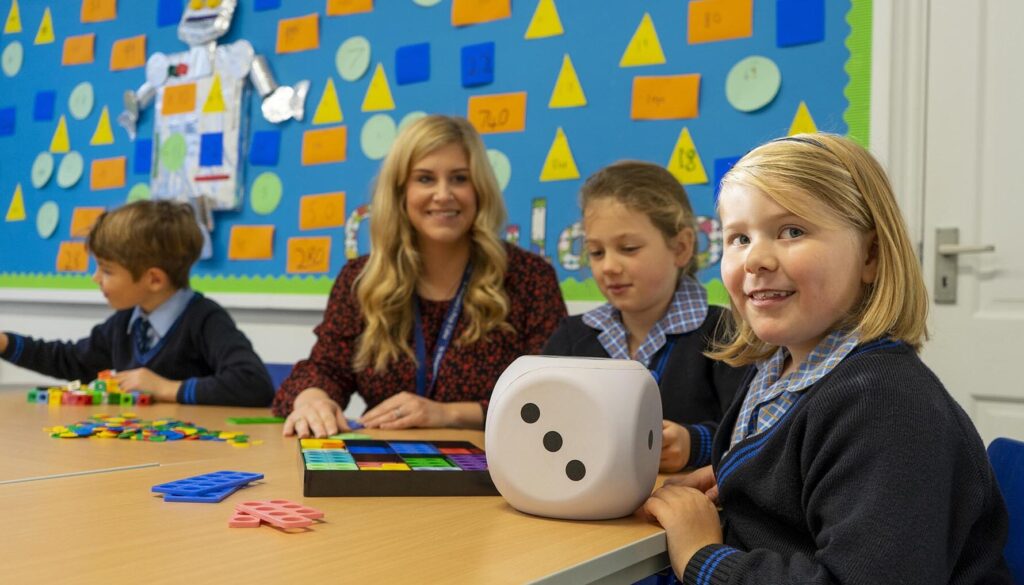MARLBOROUGH: Maths – The Marmite of Subjects?
By Sarah Harlock, Year 3 Class Teacher & Maths Subject Coordinator…
People are always surprised when I tell them that I have not always had a love for Maths. In fact, my passion for the subject has only really developed since becoming a teacher and delivering Maths lessons to the many fantastic classes that have come and gone through my door.
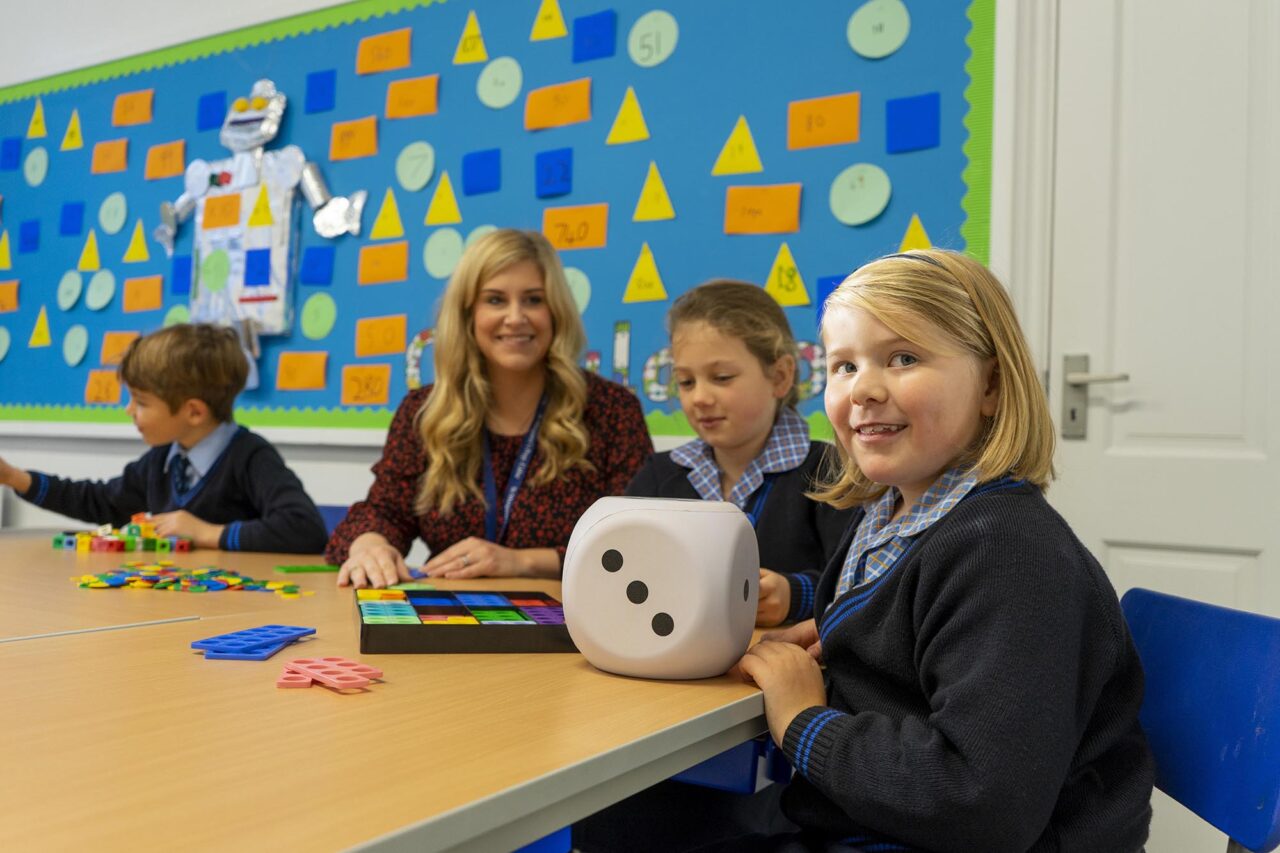
Maths at school for me was probably a very similar story to many. Lessons were not looked forward to and anxiety or fear of getting the answer wrong in front of a crowd was debilitating. Whilst I did not lack ability, I certainly lacked in confidence to share my ideas for fear of ‘being laughed at’. I know I am in good company with this mindset; there has been no single course or inset I’ve attended or delivered where the adults sat around the table have not declared that ‘they hate Maths and they better not be picked’. How worrying this is when you consider, that ultimately, most of the jobs our children will do deem Maths an essential requirement? This was heavily supported by Professor Philip Bond in his article ‘The Era of Mathematics’ where he discussed the impact of Maths in the workforce not just today but in the future:
“Developments in genomics, data science, economics, physics, quantum computing, biology, advanced engineering, epidemiology, zoology, sociology, geography, ecology, climate science, cybersecurity, social media analytics and numerous other fields all require the use not only of existing mathematical methods, but also the development of new, more powerful mathematical tools to continually spur advances and innovation.”
Unfortunately, it is well known that four out of five adults struggle with their own Maths anxieties and that children as young as six feel fear, despair and even rage as a result of anxiety. This is not just a problem limited to those who struggle with their Maths ability. Similar to my story, a study conducted by the University of Cambridge found that more than three-quarters of children with high Maths anxiety are normal to high achievers on curriculum Maths tests. As a result, children can become upset, not want to go to school, feel unwell and even angry. Very real and upsetting emotions. These statistics, my own experiences and evidence from within the classroom have all shaped me as the teacher I am today and I am proud of how far we have come. However, it is an important topic and we should not become complacent. So, what can we do?
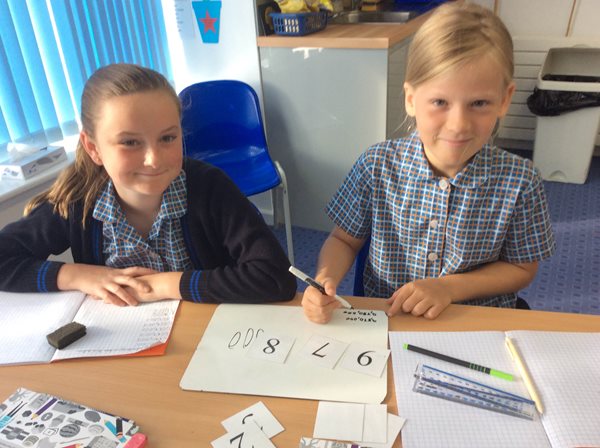
I like to think at St Margaret’s we work hard to create a safe, open environment where children feel able to share ideas and support each other’s learning. One major difference you will see in the classrooms of today is a switch in emphasis from getting the right answer to how could we find the answer? I revel in introducing a problem to my class and receiving a long list of methods everyone has used in order to tackle the solutions. Who is to say what works for one child is going to be the best method for another? I like to think of it as teachers preparing and enriching the children’s Maths toolkit so that they can be best placed in future to independently pick the method that works successfully for them and that they are confident using.
In addition, there is no better learning opportunity than children learning from one another. By encouraging collaboration you will see not only children making links thanks to a demonstration from a friend but also greater fluency in an area if confident enough to explain their methods. This was demonstrated to me whilst attending a Maths competition at the University of Cambridge. The participants were amazed to find that some of the most complex Maths theories often remained unsolved for long periods and can be found on the various whiteboards in common rooms for people to solve together. I love using this example when showing the importance of collaboration and perseverance when it comes to solving Maths problems. When we do share answers, we will always ask how they arrived at the answer. This way, even if their final answer is incorrect, we are able to celebrate the methods they used as a good choice. Additionally, by talking through their ideas they can usually identify any errors for themselves before needing them pointing out. Classrooms today celebrate a culture where we can learn from our mistakes and on my many visits to classrooms around our setting, I am always thrilled at how well this is put into action.
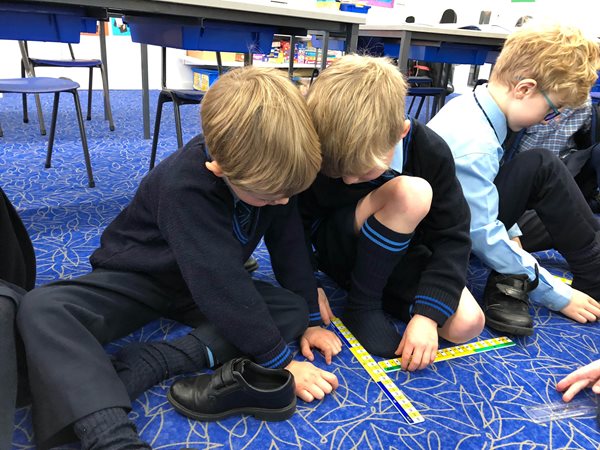
Something notable from many people’s negative experiences from their own schooling is the fact we were told methods and learnt them by rote without too much consideration being given to the ‘why’ and ‘how’. A good example of this is the very well-known subtraction with exchange or ‘borrowing’ as it is more commonly known. It was never explained why we needed to borrow, it was just a method we used without questioning because that is what we were told to do. This not only makes for a method you do not fully understand but if you do not understand it how can you ever be expected to use it accurately?
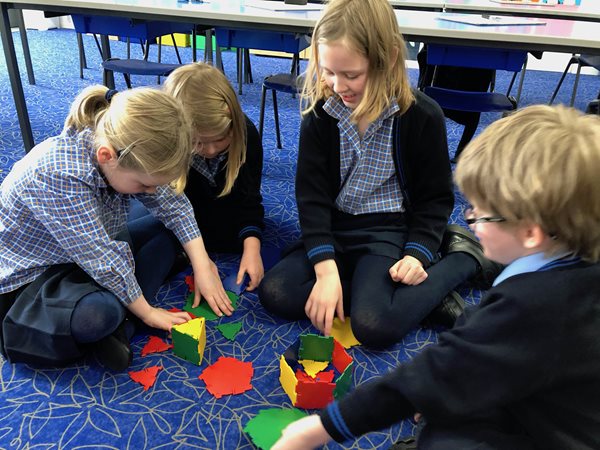
Today, we always try to make sense of why we do something in Maths. We can do this firstly by explaining how particular concepts are made use of or can be found in real-life situations but also by using concrete resources to demonstrate why something is happening. At St Margaret’s, we are very lucky to have high-quality Maths resources and I challenge you to find a lesson from Nursery all the way to Year 6 where we are not making use of innovative resources to demonstrate new concepts. Whether these are natural objects such as leaves or conkers to demonstrate symmetry or Numicon to aid place value, you will see resources being used across the school frequently. They not only help to understand new methods but also scaffold learners as they grow in confidence by offering a safety net of sorts. Suddenly, you are able to see concepts such as exchange in action and as a result, the world of Maths seems to make a little more sense.
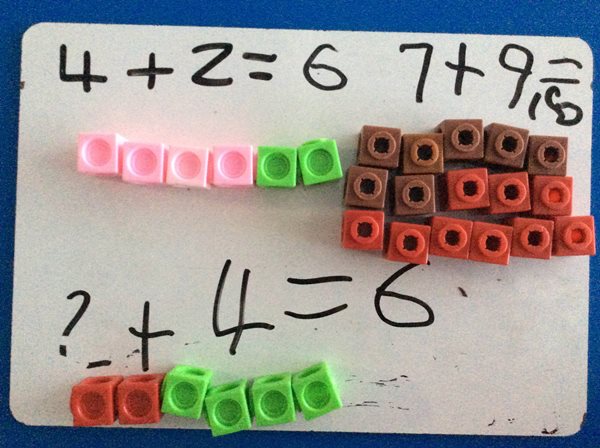
Finally, we should not forget the important role that we as parents also have on our children’s perception of Maths. You will not be surprised to hear that parental involvement has a large and positive impact on children’s learning and this is tenfold when it comes to Maths. As a parent, we are most notably the first person to share Maths experiences with our children. Talking about maths not only helps to take away some of the fear from the subject but it can also help to foster an environment where attitudes to the subject can be improved. By being positive and not focusing on the negatives most of us have from our own schooling, we can hopefully break the cycle in how our future generations perceive the subject. In praising effort rather than ability, we are creating a positive environment where trying and sharing ideas is appreciated. Similarly, by pointing out the Maths in everyday life during activities such as using money, cooking and telling the time, children do not only realise they are doing Maths but of course they have good fun in the process.
I do not think we will ever get away from the fact that Maths tends to be the ‘Marmite’ subject of our curriculum. There will always be people with strong opinions either way. However, if I can make a small difference to the attitudes of my students then I will be satisfied. I hope more than anything that the children of St Margaret’s grow to become confident and willing learners who can enthusiastically share in all the amazing world of Maths has to offer.
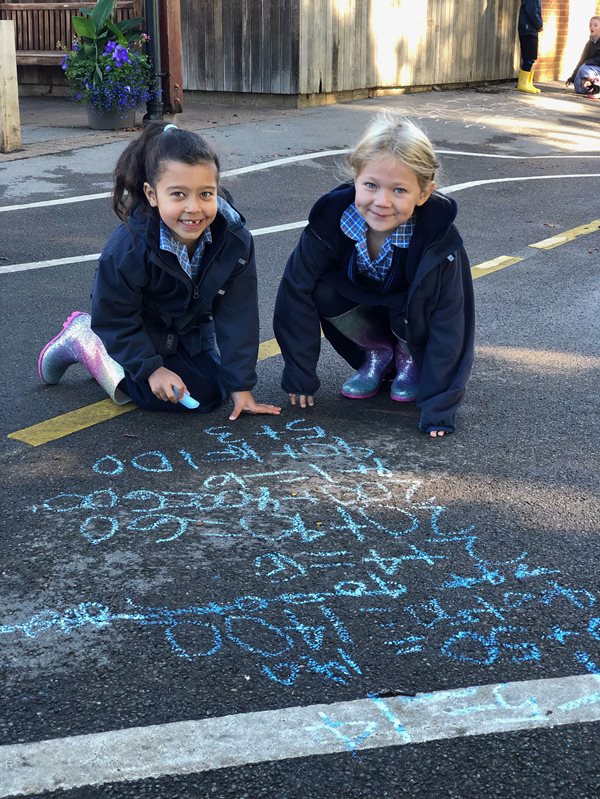
St Margaret’s Prep
Curzon Street, Calne, Wiltshire SN11 0DF
Telephone:
01249 857220 – office
01249 857379 – admissions

